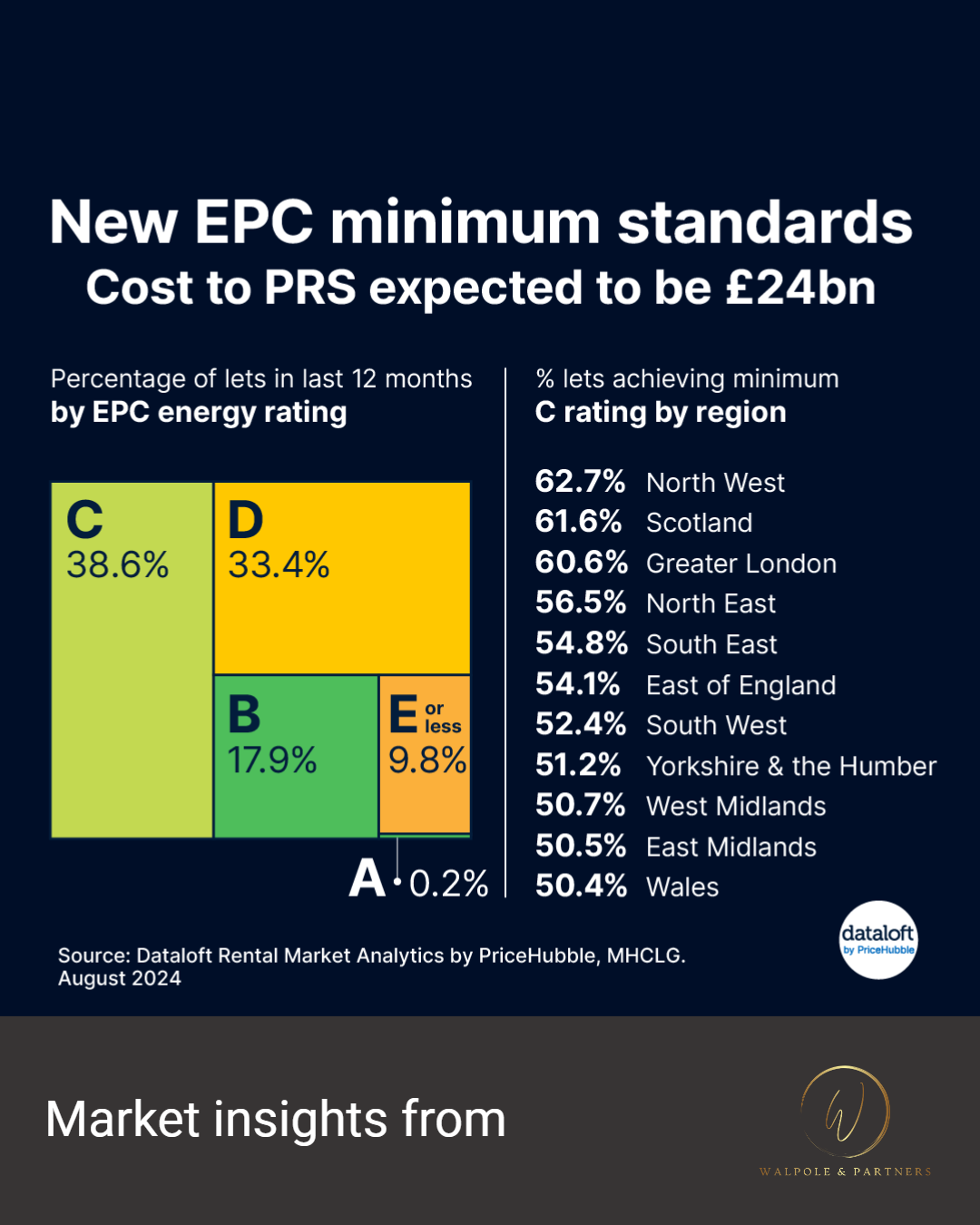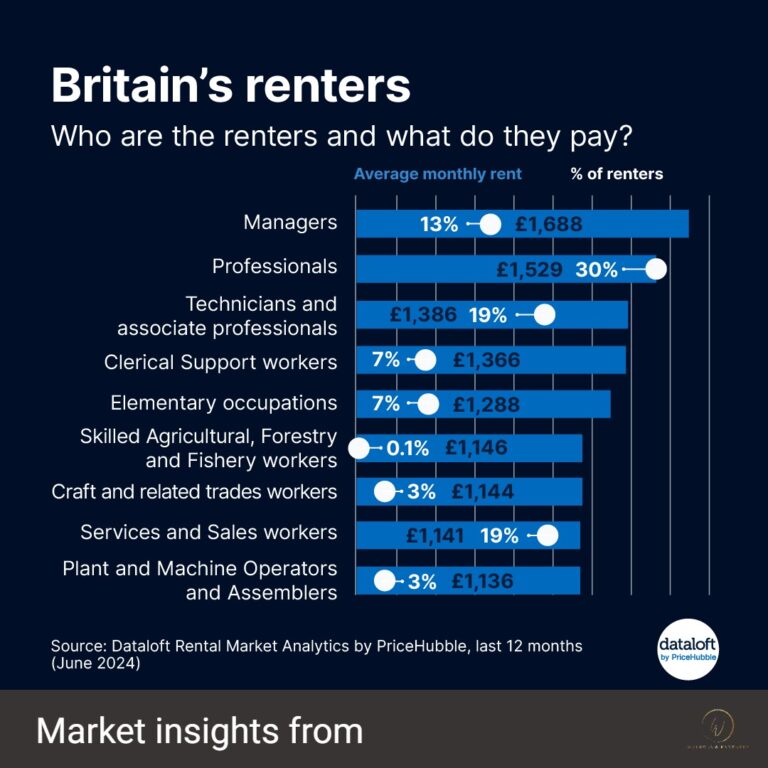The UK’s property market is undergoing significant changes due to new EPC (Energy Performance Certificate) standards that will reshape the Private Rented Sector (PRS). These updates present both challenges and opportunities for landlords and investors, especially in areas with older housing stock. Here we explore the impact of New EPC Standards on UK Property.
Understanding the Impact of New EPC Standards on UK Property Investments
The government is pushing for improved energy efficiency, leading to stricter EPC standards. It’s estimated that £24 billion is needed to upgrade the PRS to meet these requirements. Recent data reveals that:
- 38.6% of lets in the past 12 months achieved a C rating.
- 33.4% were rated D.
- 9.8% were rated E or lower, showing a significant need for upgrades.
Regions such as the North West (62.7%) and Greater London (60.6%) are leading in meeting the minimum C rating. However, areas with older housing stock are struggling to comply, increasing the urgency for improvements.
Labour’s Proposed Energy Efficiency Targets
The Labour Party has announced plans to further tighten energy efficiency standards. This move will put additional pressure on landlords. While these proposed changes are necessary for achieving the UK’s environmental goals, they also mean landlords must now factor in the costs of upgrading properties or face potential penalties.
Older properties, especially in certain regions, could present financial challenges. However, ensuring properties meet the required EPC ratings is crucial for maintaining property value and tenant appeal. Landlords must weigh the costs of upgrades against the potential penalties for non-compliance.
Regions Most Affected by the New EPC Standards
Areas with a high proportion of older, less energy-efficient housing stock will be the most affected by the new requirements. The following regions are at risk:
- North East: With many older, terraced homes built before modern energy efficiency standards, only 56.5% of properties meet the minimum C rating, indicating a need for substantial upgrades.
- Yorkshire and the Humber: This region has a large stock of pre-war properties, including Victorian and Edwardian homes, that are notoriously energy inefficient. Only 51.2% of properties currently meet the minimum C rating.
- East Midlands: The region’s diverse housing stock includes many older properties requiring significant investment to meet the new standards. Currently, only 50.5% of properties achieve a C rating.
- West Midlands: With its industrial heritage, the West Midlands is home to many older properties with poor energy efficiency. Currently, only 50.7% of lets meet the required C rating.
- South West: Known for its rural charm, the South West has many older, rural properties that are challenging to upgrade. Only 52.4% of properties currently meet the EPC minimum standard, making it another region heavily impacted.
Strategies for UK Landlords Adapting to EPC Standard Changes
For many landlords, especially those with older properties, the cost of upgrading insulation, heating systems, and other energy-efficient measures could be substantial. This financial burden raises concerns about the future supply of rental properties, as some landlords might opt to exit the market rather than invest in expensive upgrades.
Tenant demand remains strong, and rents continue to rise in key regions. However, the cost of compliance with EPC standards may force some landlords to increase rents or reduce the number of available properties, further tightening the rental market.
Proactive Steps for Landlords
Given the potential financial impact of these new standards, landlords should take proactive steps to assess and improve the energy efficiency of their properties. The EPC Register is a valuable tool for checking the current rating of current or planned investment properties and planning for necessary upgrades well in advance.
Landlords may benefit from grants and financial incentives aimed at improving energy efficiency. By acting early, they can spread the cost of upgrades over time and avoid the rush to comply when the regulations come into full effect.
Conclusion: Impact of New EPC Standards on UK Property
The intersection of rising energy efficiency standards and the evolving UK property market presents both challenges and opportunities for landlords and investors. While the cost of upgrades may be steep, the benefits of maintaining property value, meeting regulatory requirements, and attracting energy-conscious tenants make it a worthwhile investment. Staying informed and proactive is crucial for navigating this changing landscape. The impact of these changes will be felt across the UK, with some regions facing more significant challenges than others. However, by taking the right steps now, landlords can ensure their properties remain competitive and compliant in the years ahead. We are happy to have a chat with you and can be reached on +65 84688303 or you can also keep up to date on market insights here.








